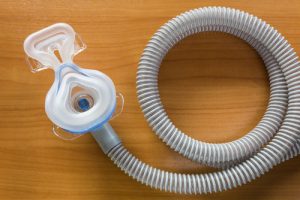 Patients with sleep apnea tend to feel exhausted and their chronic snoring can also make rest difficult for their partners. Treating sleep apnea can help prevent the risk of complications, such as depression, high blood pressure, stroke, and heart attack. What are your OSA treatment options?
Patients with sleep apnea tend to feel exhausted and their chronic snoring can also make rest difficult for their partners. Treating sleep apnea can help prevent the risk of complications, such as depression, high blood pressure, stroke, and heart attack. What are your OSA treatment options?
OSA Treatment Quiz
- True or False: CPAP ensures patients keep breathing through the night.
- True or False: Some patients prefer an oral appliance.
- True or False: We may use a combination of these two methods.
- True or False: You can also help address sleep apnea from home.
Answer Key
- True. The CPAP machine is a mask connected to a special device via a hose. The device sends air through the hose and into a mask, where it is forced through the nose and mouth. The patient then breathes uninterrupted throughout the night.
- True. An oral appliance is worn during sleep like a nightguard. However, the appliance provides support to the lower jaw, moving it forward slightly to keep airways open through the night. Breathing remains unobstructed, which helps stop sleep apnea episodes.
- True. In some cases, it takes more than just a CPAP machine or an oral appliance. We may prescribe a combination of both to stop apnea episodes and allow you to sleep. We will use a sleep assessment to decide which option, or if a combination of options, will be necessary to treat your OSA.
- True. First, try to maintain a regular sleep schedule, going to bed and waking up at the same times daily. We also suggest making your bedroom conducive to a good night’s rest, keeping the room dark, cool, and free from distractions, such as TV or computers. We suggest avoiding caffeine or alcohol before bed and you may try sleeping on your side instead of your back.






